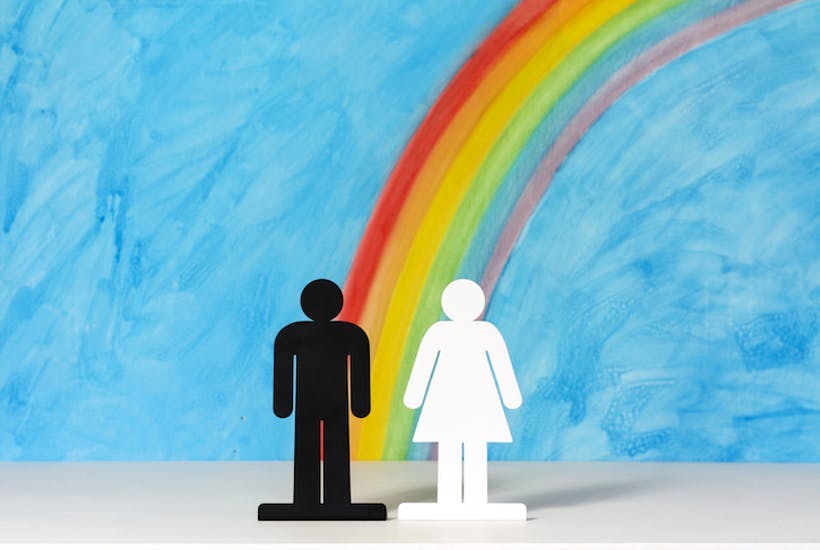‘Well what sort of question is that? That’s bloody stupid if you ask me. I’ve two daughters and five grandchildren. I’ve got my bits and him indoors, he’s got his – that’s just nature.’ Those were the words of my octogenarian neighbour Joan who, reasonably enough, looked at me like I was a simpleton when I asked her what she thought ‘made a woman.’
What prompted my question to Joan was the upcoming arrival of a huge billboard emblazoned with the unremarkable words ‘Woman; wʊmən/(noun) adult human female.’ This message will be placed in Liverpool city centre by the campaign group Standing for Women ahead of the Labour Party conference. The debate that underlies it is the inclusion of transgender women on the Labour Party’s All-Women Shortlists and the party leadership’s support for government proposals that will make it easier to legally change your gender.
The woman behind the billboard is campaigner Kellie-Jay Keen-Minshull, who says the aim is to ‘make the politicians stop and think.’ She tells me:
‘I was a supporter of the Labour Party for years, but I can’t now in all good conscience support a political party that is hellbent on destroying women’s rights. But this is wider than just the Labour party. The word ‘woman’ matters. It means adult human female. If we expand that definition to say that ‘woman’ includes men who claim to feel like women, so as not to hurt their feelings, the word will become meaningless. As will the rights that generations of women before us fought for.’
This line of argument has been strongly refuted by Shadow Equalities Minister Dawn Butler MP, an ardent champion of the ‘transwomen are women’ message. When she spoke at a ‘We’re Still Here; A Celebration of Trans UK’ conference last Saturday, Butler appeared to argue that there is no contradiction between the rights of women and those of transgender people. The senior Labour Party figure is apparently either unaware or unconcerned by the fact that, according to transgender advocacy group GIRES, the vast majority of transgender people have not undertaken any medical transition, and around only twenty per cent will ever do so. This creates something of a paradox, because if transwomen are women, then this means that some women have penises.
Butler is not alone in her view. Jeremy Corbyn has posed for selfies with the transgender activist and now Labour Women’s Officer Lily Madigan, who Angela Rayner MP has said she’s ‘keeping the benches warm’ in parliament for. Harriet Harman MP has supported the move to accept transwomen without gender recognition certificates onto Labour’s All-Women Shortlists, without the membership being consulted. Concerningly, Wes Streeting MP wasfound to be a member of a Facebook group called ‘Labour Against Transphobia’ which lists party members suspected of being ‘transphobic.’
Any dissent over this issue has largely come from rank and file members of the Party. A motion from Rother Valley Constituency Labour Party urged the party to protect sex-based rights and to ‘consult with women’s organisations on how self-identification would impact on women only services, facilities and spaces.’ These are not lone voices, but groups set-up specifically to fight the government proposal to amend the Gender Recognition Act. Many, such as Woman’s Place UK, are firmly rooted in the Trade Union and Labour movements.
With the Labour Party about to meet for the Party Conference in Liverpool the Standing for Women billboard is sure to attract comment. The logic of the billboard is hard to fault; definitions are exclusionary and objective, that’s sort of the point. The policies, procedures and legislation designed to protect women will arguably become meaningless if men can ‘identify’ as women on the basis of subjective feelings. The latest row over the internationally recognised definition of anti-Semitism should have taught the Labour Party that definitions matter and that failing to listen to those affected by them will damage their credibility and cost them votes.






Comments